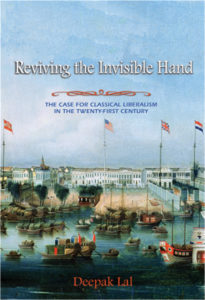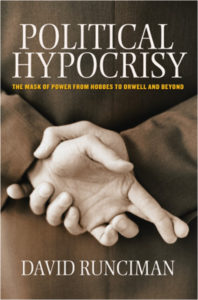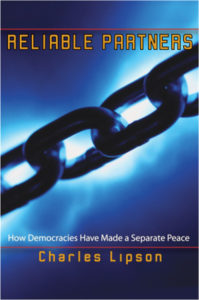
Island of Shame: The Secret History of the U.S. Military Base on Diego Garcia
David Vine
Princeton Uni Press (2011), Rs3,760
The American military base on the island of Diego Garcia is one of the most strategically important and secretive U.S. military installations outside the United States. Located near the remote center of the Indian Ocean and accessible only by military transport, the little-known base has been instrumental in American military operations from the Cold War to the war on terror and may house a top-secret CIA prison where terror suspects are interrogated and tortured. But Diego Garcia harbors another dirty secret, one that has been kept from most of the world—until now.
Island of Shame is the first major book to reveal the shocking truth of how the United States conspired with Britain to forcibly expel Diego Garcia’s indigenous people—the Chagossians—and deport them to slums in Mauritius and the Seychelles, where most live in dire poverty to this day. Drawing on interviews with Washington insiders, military strategists, and exiled islanders, as well as hundreds of declassified documents, David Vine exposes the secret history of Diego Garcia. He chronicles the Chagossians’ dramatic, unfolding story as they struggle to survive in exile and fight to return to their homeland. Tracing U.S. foreign policy from the Cold War to the war on terror, Vine shows how the United States has forged a new and pervasive kind of empire that is quietly dominating the planet with hundreds of overseas military bases.
Island of Shame is an unforgettable exposé of the human costs of empire and a must-read for anyone concerned about U.S. foreign policy and its consequences. The author will donate all royalties from the sale of this book to the Chagossians.
David Vine is assistant professor of anthropology at American University in Washington, D.C.

Reviving the Invisible Hand: The Case for Classical Liberalism in the Twenty-first Century
Deepak Lal
Princeton Uni Press (2008), Rs3,641
Reviving the Invisible Hand is an uncompromising call for a global return to a classical liberal economic order, free of interference from governments and international organizations. Arguing for a revival of the invisible hand of free international trade and global capital, eminent economist Deepak Lal vigorously defends the view that statist attempts to ameliorate the impact of markets threaten global economic progress and stability. And in an unusual move, he not only defends globalization economically, but also answers the cultural and moral objections of antiglobalizers.
Taking a broad cross-cultural and interdisciplinary approach, Lal argues that there are two groups opposed to globalization: cultural nationalists who oppose not capitalism but Westernization, and “new dirigistes” who oppose not Westernization but capitalism. In response, Lal contends that capitalism doesn’t have to lead to Westernization, as the examples of Japan, China, and India show, and that “new dirigiste” complaints have more to do with the demoralization of their societies than with the capitalist instruments of prosperity.
Lal bases his case on a historical account of the rise of capitalism and globalization in the first two liberal international economic orders: the nineteenth-century British, and the post-World War II American.
Arguing that the “new dirigisme” is the thin edge of a wedge that could return the world to excessive economic intervention by states and international organizations, Lal does not shrink from controversial stands such as advocating the abolishment of these organizations and defending the existence of child labor in the Third World.
Deepak Lal is James S. Coleman Professor of International Development Studies at the University of California, Los Angeles, professor emeritus of political economy at University College London, and former Research Administrator at the World Bank. He has advised many governments and international agencies and is the author of numerous books on economic development and public policy, including In Praise of Empires (Palgrave Macmillan), The Poverty of Development Economics, and Unintended Consequences. In 2007, he received the International Freedom Award for Economy from the Società Liberia.

Structuring the State: The Formation of Italy and Germany and the Puzzle of Federalism
Daniel Ziblatt
Princeton Uni Press (2008), Rs4,959
Germany’s and Italy’s belated national unifications continue to loom large in contemporary debates. Often regarded as Europe’s paradigmatic instances of failed modernization, the two countries form the basis of many of our most prized theories of social science. Structuring the State undertakes one of the first systematic comparisons of the two cases, putting the origins of these nation-states and the nature of European political development in new light.
Daniel Ziblatt begins his analysis with a striking puzzle: Upon national unification, why was Germany formed as a federal nation-state and Italy as a unitary nation-state? He traces the diplomatic maneuverings and high political drama of national unification in nineteenth-century Germany and Italy to refute the widely accepted notion that the two states’ structure stemmed exclusively from Machiavellian farsightedness on the part of militarily powerful political leaders. Instead, he demonstrates that Germany’s and Italy’s “founding fathers” were constrained by two very different pre-unification patterns of institutional development. In Germany, a legacy of well-developed sub-national institutions provided the key building blocks of federalism. In Italy, these institutions’ absence doomed federalism. This crucial difference in the organization of local power still shapes debates about federalism in Italy and Germany today. By exposing the source of this enduring contrast, Structuring the State offers a broader theory of federalism’s origins that will interest scholars and students of comparative politics, state-building, international relations, and European political history.
Daniel Ziblatt is associate professor of government and social studies at Harvard University, where he is also faculty associate at the Minda de Gunzburg Center for European Studies.

Political Hypocrisy: The Mask of Power, from Hobbes to Orwell and Beyond
David Runciman
Princeton Uni Press (2010), Rs3,760
What kind of hypocrite should voters choose as their next leader? The question seems utterly cynical. But, as David Runciman suggests, it is actually much more cynical to pretend that politics can ever be completely sincere. The most dangerous form of political hypocrisy is to claim to have a politics without hypocrisy. Political Hypocrisy is a timely, and timeless, book on the problems of sincerity and truth in politics, and how we can deal with them without slipping into hypocrisy ourselves. Runciman tackles the problems through lessons drawn from some of the great truth-tellers in modern political thought—Hobbes, Mandeville, Jefferson, Bentham, Sidgwick, and Orwell—and applies his ideas to different kinds of hypocritical politicians from Oliver Cromwell to Hillary Clinton.
Runciman argues that we should accept hypocrisy as a fact of politics, but without resigning ourselves to it, let alone cynically embracing it. We should stop trying to eliminate every form of hypocrisy, and we should stop vainly searching for ideally authentic politicians. Instead, we should try to distinguish between harmless and harmful hypocrisies and should worry only about its most damaging varieties.
Written in a lively style, this book will change how we look at political hypocrisy and how we answer some basic questions about politics: What are the limits of truthfulness in politics? And when, where, and how should we expect our politicians to be honest with us, and about what?
David Runciman is reader in political theory at the University of Cambridge and a fellow of Trinity Hall. He is the author of The Politics of Good Intentions (Princeton), and writes regularly about politics for the London Review of Books.

Reliable Partners: How Democracies Have Made a Separate Peace
Charles Lipson
Princeton Uni Press (2005), Rs5,650
Democracies often go to war but almost never against each other. Indeed, “the democratic peace” has become a catchphrase among scholars and even U.S. Presidents. But why do democracies avoid fighting each other? Reliable Partners offers the first systematic and definitive explanation. Examining decades of research and speculation on the subject and testing this against the history of relations between democracies over the last two centuries, Charles Lipson concludes that constitutional democracies have a “contracting advantage”—a unique ability to settle conflicts with each other by durable agreements. In so doing he forcefully counters realist claims that a regime’s character is irrelevant to war and peace. Lipson argues that because democracies are confident their bargains will stick, they can negotiate effective settlements with each other rather than incur the great costs of war.
Why are democracies more reliable partners? Because their politics are uniquely open to outside scrutiny and facilitate long-term commitments. They cannot easily bluff, deceive, or launch surprise attacks. While this transparency weakens their bargaining position, it also makes their promises more credible—and more durable, for democracies are generally stable. Their leaders are constrained by constitutional rules, independent officials, and the political costs of abandoning public commitments. All this allows for solid bargains between democracies. When democracies contemplate breaking their agreements, their open debate gives partners advance notice and a chance to protect themselves. Hence agreements among democracies are less risky than those with nondemocratic states. Setting rigorous analysis in friendly, vigorous prose, Reliable Partners resolves longstanding questions about the democratic peace and highlights important new findings about democracies in world politics, from rivalries to alliances. Above all, it shows conclusively that democracies are uniquely adapted to seal enduring bargains with each other and thus avoid the blight of war.
Charles Lipson is Professor of Political Science at the University of Chicago, where he founded and codirects PIPES, the Program on International Politics, Economics, and Security. He is the author of Standing Guard: Protecting Foreign Capital in the Nineteenth and Twentieth Centuries.

